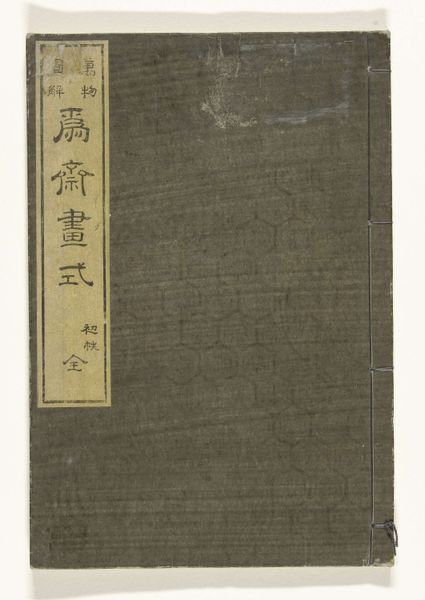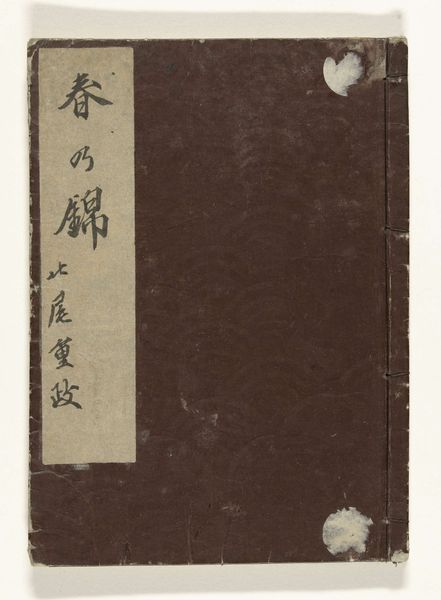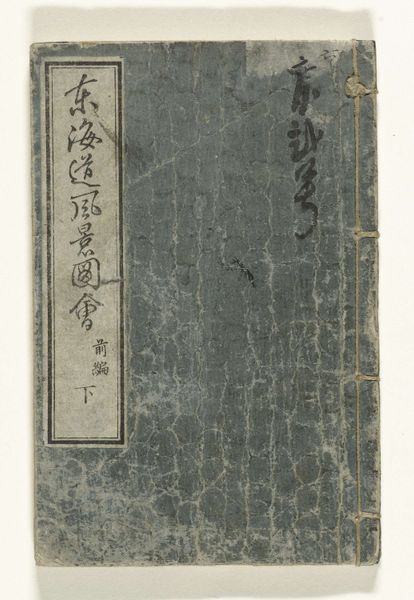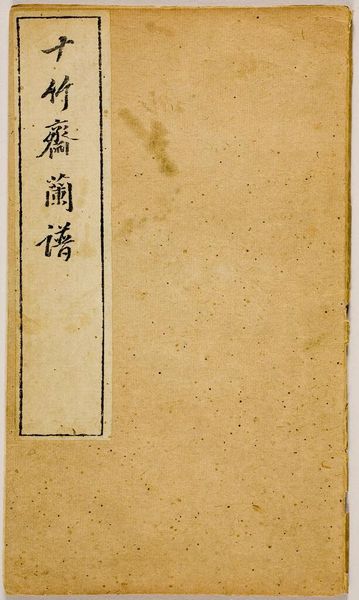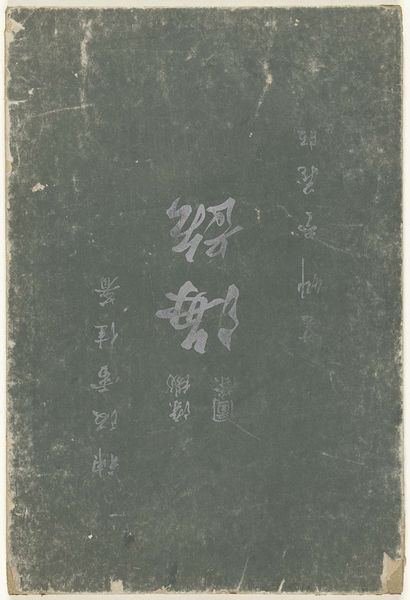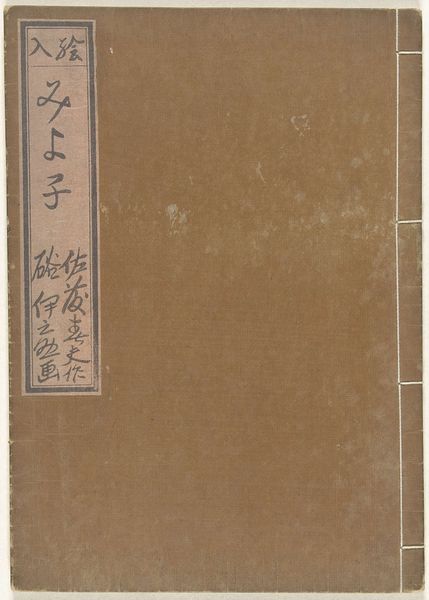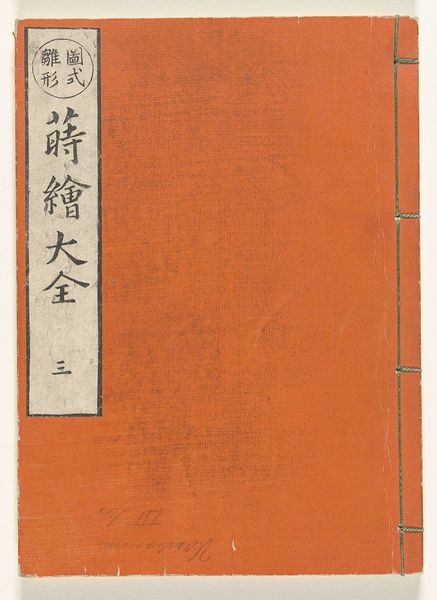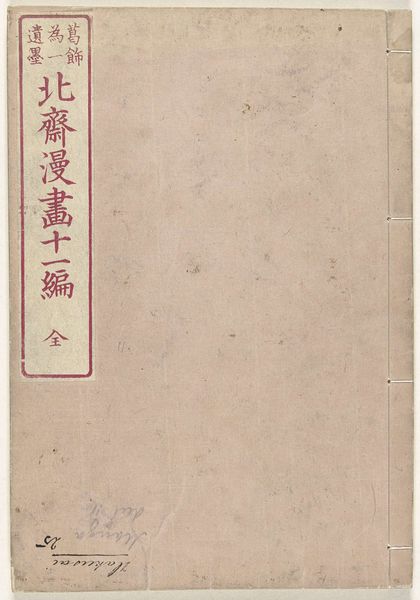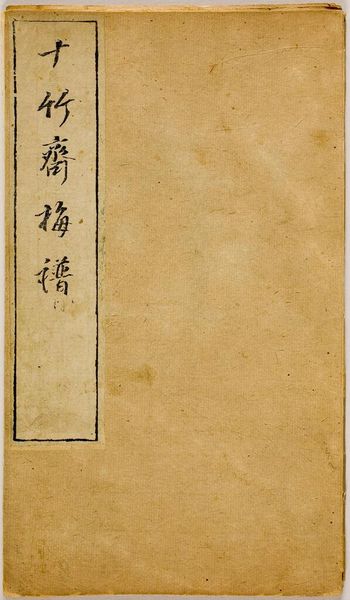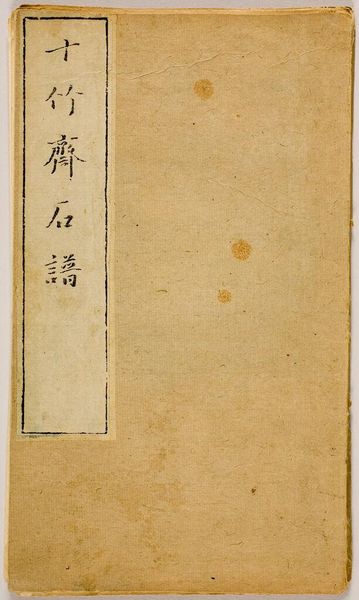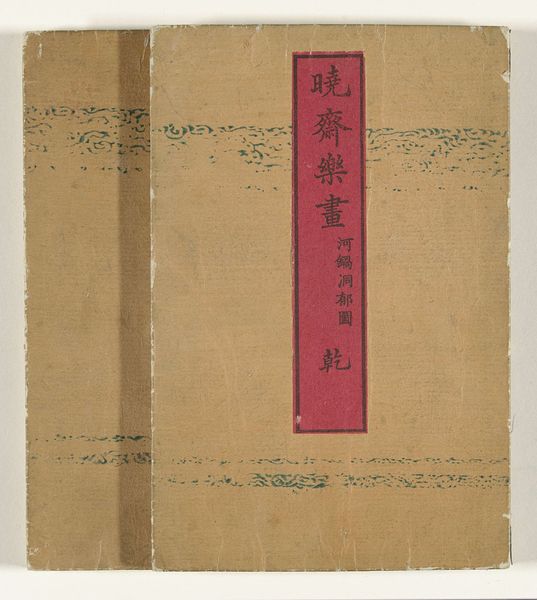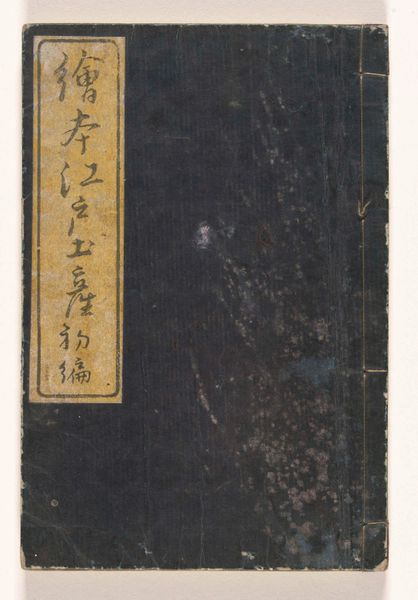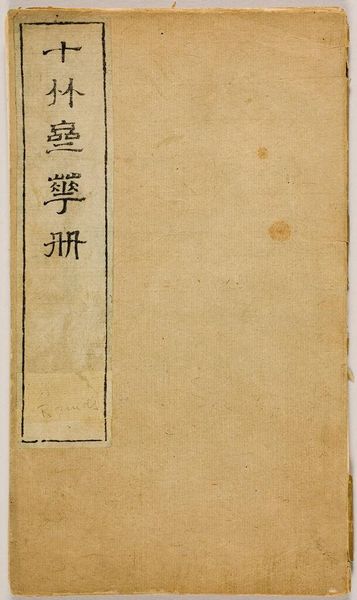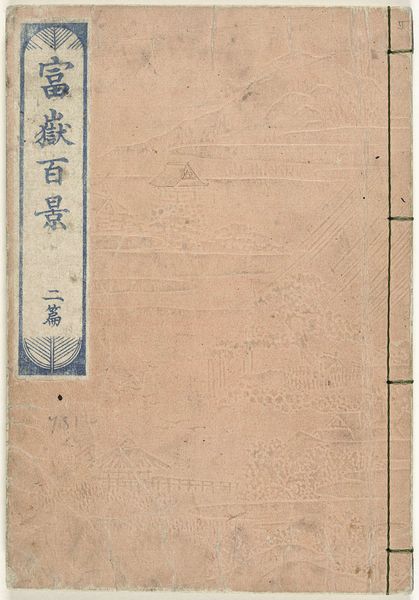
drawing, print, paper, ink
#
portrait
#
drawing
# print
#
asian-art
#
sketch book
#
paper
#
personal sketchbook
#
ink
Dimensions: height 240 mm, width 166 mm
Copyright: Rijks Museum: Open Domain
Editor: We're looking at *Karikaturen*, or "Caricatures," a work from sometime between 1752 and 1800 by Ooka Shunboku. It appears to be a drawing or print in ink on paper. The cover itself has an understated, almost severe quality. What stories can you tell us about this seemingly simple object? Curator: It might be more useful to call this an illustrated book. Given Shunboku’s historical context, understanding the book as a whole rather than individual portraits helps frame it within the Japanese artistic and social landscape. How does its role as a portable, reproducible object influence how it reached the public, compared to, say, a hanging scroll only available to a wealthy patron? Editor: That makes me consider how accessible art could be at this time. How did something like printmaking impact the dissemination of art to a broader audience? Curator: Exactly. Printmaking democratized imagery. The creation of *ukiyo-e*, for instance, coincided with the rise of a merchant class and a vibrant urban culture. Artists and publishers found ways to represent, but also shape, the evolving social values and tastes. Does this open a different interpretive lens? Editor: It does. Thinking about the social context encourages me to see this less as just a personal sketchbook and more as a commentary on society or popular culture. Were there censorship limitations at the time that artists like Shunboku may have been trying to navigate or challenge? Curator: A keen observation. Censorship did exist, subtly impacting choices about subject matter, stylistic conventions and modes of representation. Even in caricature, where artists critique, they did so mindful of existing power structures. Do you find this subtle resistance in other artistic expressions from the era? Editor: It’s definitely something I will be looking for from now on! I appreciate you opening my eyes to think about dissemination, power, and potential challenges to both. Curator: It's a pleasure. Context transforms an object. It urges us to not simply appreciate but analyze how that image moved, and the conversations it sparked across society.
Comments
No comments
Be the first to comment and join the conversation on the ultimate creative platform.
